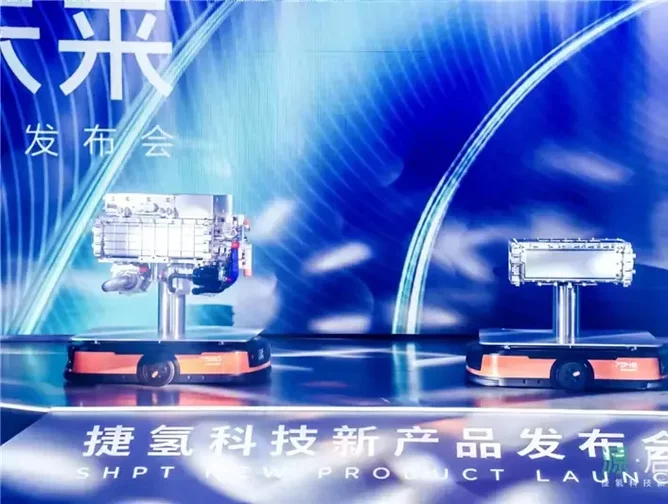SAIC Motor launches self-developed fuel cell system

In an announcement made by SAIC Motor, the automotive manufacturer’s subsidiary - Shanghai Hydrogen Propulsion Technology Co. (SHPT) - has launched its self-developed fuel cell system; the M4 fuel cell stack platform as well as M4 stack platform-based PROME M4H fuel cell stack, PROME P4L and P4H fuel cell systems.
Equipped with world-class core performance indicators, these innovations, mark a major breakthrough for SAIC Motor, as well as Chinese companies in the core technologies of new energy fuel cells. The solutions will be helpful for the country to establish an advantage in NEV technology and realise its 2030 and 2060 sustainability goals.
SAIC Motor and fuel cell technology
SAIC Motor is China’s first automotive manufacturer to develop fuel cell technology, and the only company worldwide to achieve commercial applications in multiple vehicles.
In the past year, SAIC Motors has launched fuel cell cars, multi-purpose vehicles, light buses, coaches, light trucks, and heavy-duty trucks across 13 cities in China, and is currently working with Ordos (a city in China), to develop the world’s first application of 10,000 fuel cell heavy trucks.

Shanghai Hydrogen Propulsion Technology Co. (SHPT)
SHPT was established by SAIC Motor in 2018, the company specialises in developing and manufacturing fuel cell stacks and systems.
“SHPT is capable of developing core components (bipolar plates and membrane electrode assembly) of fuel cell stacks, stack integration, fuel cell system integration, fuel cell propulsion system integration, and vehicle integration and owns independent intellectual property rights on these innovations,” stated SAIC Motor.
The new PROME M4H fuel cell stack has been independently designed and developed by SHPT, with its primary components (44 in total) produced domestically. SAIC Motor reported that the fuel cell stack is of the same world-leading standard as Toyota.
“Due to its highly integrated design, the PROME P4H fuel cell system is smaller and more powerful, boasting a volumetric power density of 1020 W/L and mass power density of 722 W/kg. In addition, the system also has vehicle-level anti-shock and anti-vibration performance with an ingress protection rating of IP67,” detailed SAIC Motor.
SHPT expects its supply of fuel cell stacks and systems to exceed 4,000 units and/or sets this year and next.
- Top 10: Chief Manufacturing OfficersProduction & Operations
- Aerospace Insight: Where does Boeing make all of its PlanesProduction & Operations
- Comau's Automation Solutions for Outside of ManufacturingAI & Automation
- Toyota Partners with Artelys to Streamline Post-ProductionProcurement & Supply Chain






